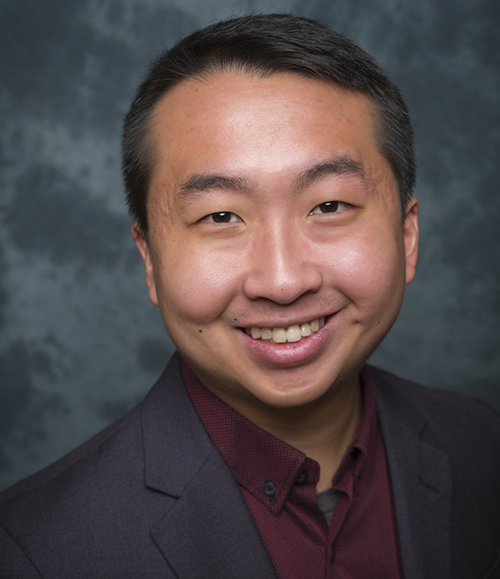Graduate student Josh Pearman interns with Roblox
October 16, 2024 - Shelly DeJong
 Josh Pearman is a PhD student specializing in Organizational Psychology. Over the summer, Josh interned with Roblox as a People Science intern where he developed a situational judgement test. Continue reading to learn more about Josh, why he likes organizational psychology, how his education helped prepare him for this role, and more!
Josh Pearman is a PhD student specializing in Organizational Psychology. Over the summer, Josh interned with Roblox as a People Science intern where he developed a situational judgement test. Continue reading to learn more about Josh, why he likes organizational psychology, how his education helped prepare him for this role, and more!
What are your research interests?
I research teams, personality, and technology. Specifically, I am interested in understanding how people's personality traits inform team composition, as well as how we can use various technologies (e.g., natural language processing, unobtrusive interaction networks, virtual environments) to measure team behaviors and constructs.
What do you like about organizational psychology?
A major aspect of organizational psychology I appreciate is the ability to work on interesting and important problems. For example, I've worked on a NASA-funded grant examining how communication delays can interfere with problem-solving between astronauts and Mission Control. Our research will help augment the ability for this space multiteam system to coordinate, and I believe it will also have implications that can improve how multiteam systems work together in other contexts.
Tell us about your internship!
I was a People Science Intern at Roblox primarily working on assessment development. My role involved developing a new situational judgment test, which is sort of like a job relevant "What would you do about this problem?" question. Roblox was a great place to intern because I was really interested in how industrial-organizational psychology is applied in a technology company. Interviewing engineers and managers was a great opportunity to learn about the technical work at Roblox and link it to key I-O concepts. I also really enjoyed having the opportunity to explore other projects in People Science over the summer, including conducting interviews for job analyses, experimenting with artificial intelligence applications in I-O, and proposing novel research to better understand how employees work together.
How did your education in Org Psych help you in this role?
In terms of general research skills, learning how to dig deep into answering a question and independently drive projects were both key to my internship. I had to read quite a few papers and leverage my expertise in individual differences to ground what I was doing in the science, while also making sure to consider the context and culture of Roblox in how I designed the assessment. I'm especially grateful I had the opportunity to take a graduate seminar called Applied Skills with Dr. Kevin Ford and Dr. Ann Marie Ryan where doctoral students consult on projects with companies, as I was able to gain experience writing white papers and giving stakeholder presentations on key people analytics questions. This is akin to the NASA-funded research I work on with Dr. Dorothy Carter where we similarly do research to answer the applied questions that NASA considers mission-critical.
What did you like most about your internship?
I strongly enjoyed the culture of collaboration at Roblox, as I always felt like I had the support and resources to execute my work. People were curious about my project and were eager to provide helpful feedback and would even take meetings with me to share about their work or brainstorm ideas for other projects. Similarly, I felt like the team valued my own perspective, which encouraged me to think of how I could do more to contribute. This culture is what really made the internship a learning experience for me.
Did anything surprise you about your internship?
I think one big thing was getting used to the pace of the internship. It took some adjusting since as a graduate student; I tend to want to spend too much time reading papers to inform my research. Research in this role was critical, but I had to make sure to find a good stopping point and move towards the next step of making a decision and designing the assessment.
Is this similar work to what you’d like to do in the future?
I really enjoyed my work in this internship, especially since I was able to contribute to a variety of projects in a technology-centered context. In the future, I think it would be really interesting to work on a game-based assessment as that requires a lot of effortful thinking about how a psychological construct translates to behaviors. That intersection between technology and construct-based behaviors is the kind of work that informs my major streams of research.

